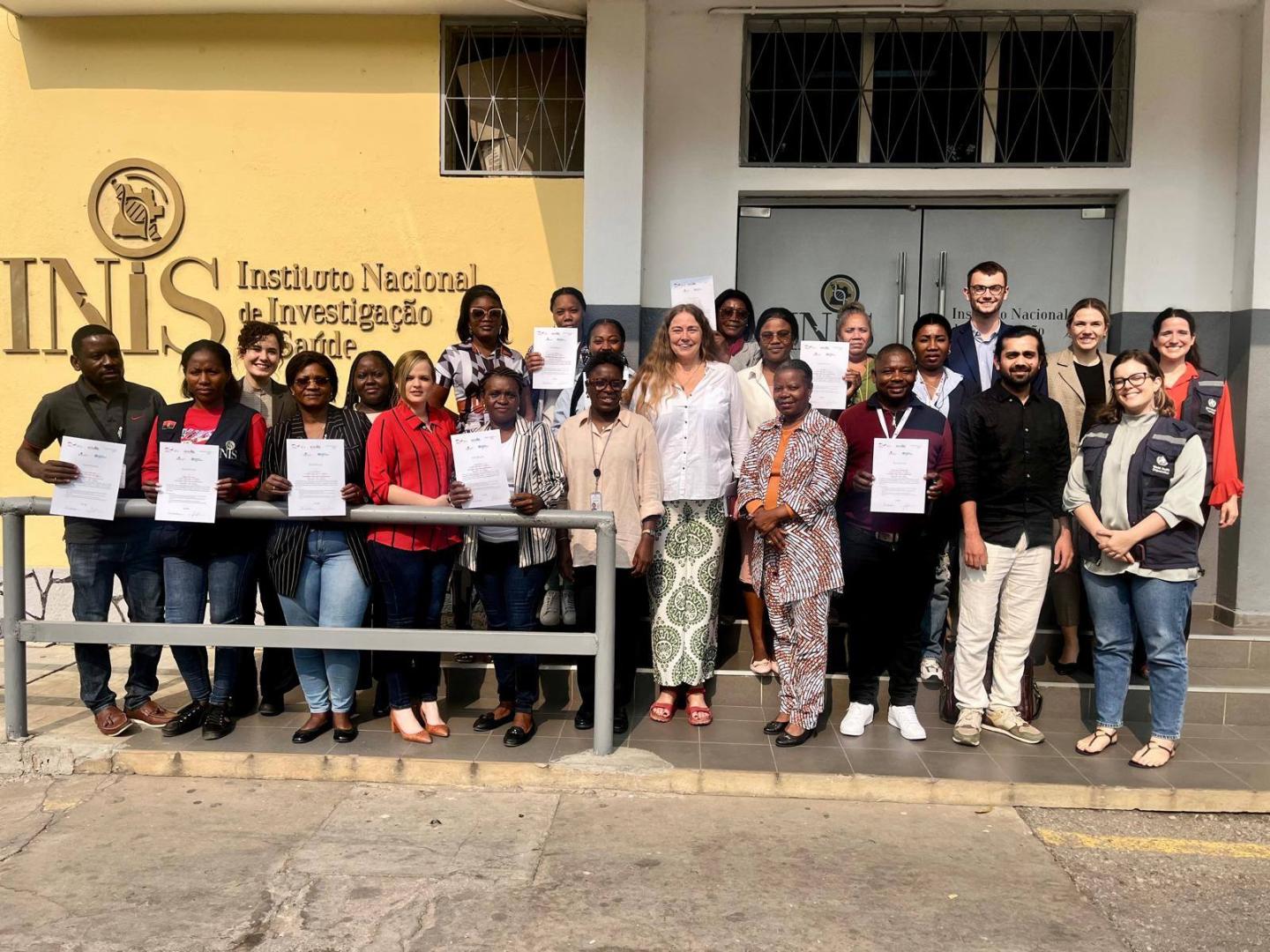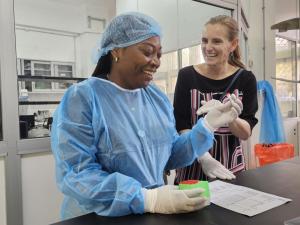WHO, SEEG and Partners Support Angola in Strengthening Health Systems
Luanda, 28 July 2025 – In response to the ongoing cholera outbreak in Angola, a two-week training programme brought together national and international experts to strengthen the country’s capacity in laboratory diagnostics and epidemiological surveillance. The initiative was led by the German Epidemic Preparedness Team (SEEG), in collaboration with the World Health Organization (WHO) and the Ministry of Health.
The training, held at the National Institute of Health Research (INIS) with support from the Directorate of Public Health for the surveillance component, combined intensive sessions on laboratory and surveillance practices. Experts from SEEG institutions, including the Robert Koch Institute, the Bernhard Nocht Institute for Tropical Medicine and the Institut Pasteur, as well as WHO, worked side by side with Angolan professionals to improve cholera diagnostic capacity and the integration of laboratory data into national health information systems.
More than 40 professionals were trained, including over 20 from INIS and two laboratory technicians from Cuanza Sul, who participated in practical laboratory sessions focused on cholera diagnosis using culture and molecular biology methods, antimicrobial resistance testing, biosafety, quality control, and cryopreservation of cholera strains in the first week.
In the second week, 24 professionals from the National Directorate of Public Health (DNSP-Luanda) received training in surveillance techniques such as the use of DHIS2 (District Health Information Software, version 2) dashboards, a digital platform widely used across Africa for health data management. They also received training in community-based surveillance and GIS (Geographic Information Systems) mapping.

This Training of Trainers (ToT) approach ensures that participants are now equipped to replicate their knowledge across the country. As a direct result, WHO, with support from the European Union’s Directorate-General for Civil Protection and Humanitarian Aid Operations and the United Nations Central Emergency Response Fund, will facilitate follow-up training, bringing laboratory technicians from various provinces to INIS. This next phase will significantly decentralize diagnostic capacity and strengthen national surveillance systems.
The success of this initiative highlights the value of multisectoral collaboration. SEEG’s medium-term technical support complements WHO’s ongoing emergency response efforts, aligning with Angola’s national priorities for epidemic preparedness and resilient health systems.
